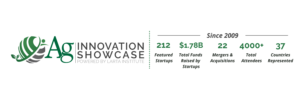Compact Membrane Systems (CMS) has developed a novel packaging material to extend the shelf life of fruits and vegetables, from harvest to transport to market.
In today’s global produce market, and especially since the advent of COVID-19, extending shelf life of fruits and vegetables is increasingly important to consumers, producers, and companies in the global food supply chain.
Left alone, certain produce naturally produces ethylene, which hastens the ripening and spoilage of fruits and vegetables. Spoilage is a key contributor to the >30% of food that is lost and wasted at the home and retail levels. https://usda.gov/foodwaste/faqs
Delaying this ripening process enables fruits and vegetables to stay fresher longer, whether in transport, at the store, at home, or on their way to restaurants, commercial kitchens, or military sites.
Currently, oxygen and carbon dioxide levels are controlled by modified atmospheric packaging (MAP), the process by which air is removed from a food container and specially designed packaging, or controlled atmosphere (CA) environments. However, currently neither MAP nor CA has means for ethylene control, causing an issue for produce that are heavy ethylene generators and whose ripeness is impacted by ethylene levels. This category includes avocados, apples, bananas, and mangos to mention just a few.
Compact Membrane Systems has developed novel films that help control and eliminate the ethylene that fresh produce generates, delaying its ripening. Used in conjunction with existing modified atmospheric packaging (MAP) or controlled atmosphere (CA) technology, CMS membranes can improve the shelf life of postharvest fruits, vegetables, and flowers by controlling the concentration of gases inside the package or shipping container.
About the CMS technology
Compact Membrane Systems, Inc. (CMS) has developed novel films that have high transport of ethylene while having low transport for both oxygen and carbon dioxide. For example, CMS films demonstrated the ability to maintain ethylene levels below 5ppm in a closed container while not changing the oxygen or carbon dioxide concentrations. These properties make CMS films ideal for integration into existing MAP solutions. CMS is now actively seeking partners to deploy these novel films for MAP applications.
CMS develops novel films and membrane systems for tough chemical separations. CMS is developing olefin-selective related films to improve controlled atmosphere environments with the support of the United States Department of Agriculture.
Contact CMS to learn more about this project or acquire samples for testing.

CMS will be presenting the initial testing results at the Ag Innovation Showcase on August 27-28. Please visit the showcase website to learn more or to register to attend.

